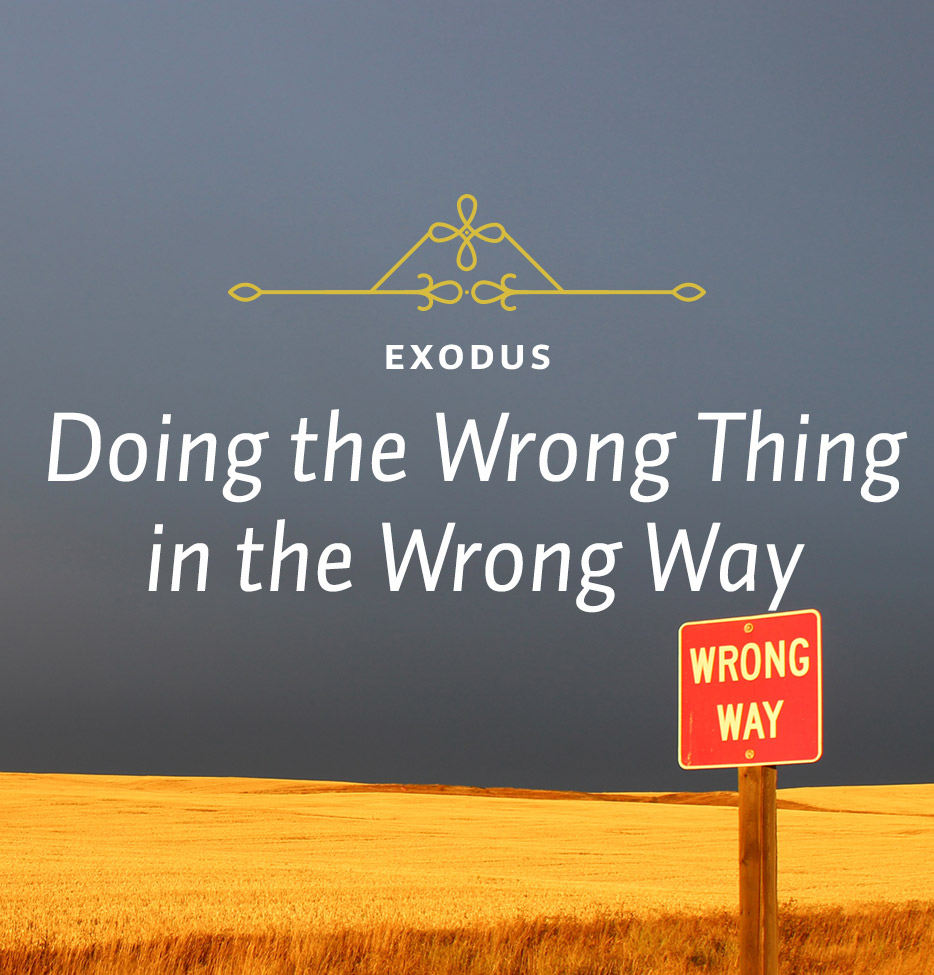After Moses killed the Egyptian he had to run away to Midian. Nobody is exactly sure where Midian is. The Midianites may have been nomads. We know at the time when Joseph was sold into slavery, it was a Midianite caravan that came by.
The Midianites were descended from Abraham through his second wife Keturah. So they may have preserved something of the knowledge of the true God. The Midianite man Reuel was a priest of God. His name means “friend of God,” or maybe even “God is my shepherd.” Although that doesn’t necessarily identify God as Jehovah. Moses was welcomed into this man’s desert settlement because he helped Reuel’s daughters when they came for water. Moses was sitting by the well, and when the shepherds drove these daughters away, Moses defended them. He drove off the shepherds, and then watered the flocks of the women, who then went back and told their father. And so he was invited in.
We next read that Reuel gave Moses his daughter Zipporah to be his wife. We don’t learn a whole lot about Zipporah but she shows up again in the story at the end of Exodus 4, and again in Exodus 18. Moses had two sons by this woman by the time he set out for Egypt. But only the first is mentioned here in the second chapter, probably because of the meaning of his name. His name was Gershom. It is based on the two Hebrew words “ger” and “shom,” meaning “a resident alien there.” And the reason he called his son that is, as verse 22 says, “It is because I become an alien in a foreign land.”
What picture do we have for Moses at this point? He settled down in Midian, he is married, he has two children, he has become a shepherd, and the decades are going by. I wonder what he thought about Egypt during those years. It doesn’t tell us. It was a very different life that he was living in Midian as a shepherd rather than as a prince in the palace of the Pharaoh. I suppose there were times, maybe long periods of time, maybe years at a time, when Moses utterly forgot his people and the life in Egypt. But you know, you get to the end of the chapter and you find that God had not forgotten them. The last verses of Exodus 2 say, “The Israelites groaned in their slavery and cried out, and their cry for help because of their slavery went up to God. And God heard their groaning and he remembered his covenant with Abraham, with Isaac and with Jacob. So God looked on the Israelites and was concerned about them” (vv. 23-25).
The Bible startles us from time to time by these understatements. God was concerned about them. I’ll say He was! He was about to shake heaven and earth to get them out of Egypt and bring them into their own land.
Let’s look now at some points of application. The first is the value of an early godly education. Do not underestimate the importance of this. We don’t know how long Moses stayed with his mother, Jochebed. I am sure she stretched it out as long as she could, but it couldn’t have been more than three or four years. Yet in those years she taught him what he needed to know, so that forty years later he remembered who he was, remembered the God of his people, and he determined that he was going to stand with Jehovah God and his people, rather than with the Egyptians.
Students of child development reinforce that today. They tell us that the earliest years are the most important, the first three to five years especially. The Bible says “Train up a child in the way he should go, and when he is old, he will not turn from it” (Prov. 22:6.) It doesn’t mean that a child will never sin, or that the child will never get far away from God. But it does mean that if those things are planted in a child at an early age, they stick with the child and God will use them later to bring the child back to Himself.
Secondly, it teaches that we can do something utterly right one moment and something utterly wrong the next. Moses is an example of that. He made a right decision to identify with his people and to turn his back on the sins of Egypt. But then in the very next breath, as it were, he went about killing an Egyptian. So, a right decision but a wrong action.
There is another great example of that in the Bible, and it’s the apostle Peter. We find it in Matthew 16. Jesus asked this question: “Who do you say that I am?” Peter had this great insight given to him by the Holy Spirit. He said, “You are the Christ, the Son of the living God.” Jesus commended Peter and told him that his answer had been revealed to him by the Holy Spirit.
And then Jesus went on from there. Once it was correctly understood who Jesus was, then He went on to talk about His work. Jesus began to say it was necessary that He should be arrested and be crucified by His enemies. At that point, Peter broke in and said, “Never Lord, that shall never happen to you!” In response, Jesus had to rebuke him, saying, “Out of my sight, Satan, you are a stumbling block to me. You do not have in mind the things of God, but the things of man.” So one moment Peter was a spokesman for God, empowered by the Holy Spirit. The next second he was a tool of Satan. The same thing will happen with us, unless we keep close to God. You see we are very capable of exactly the same thing.






